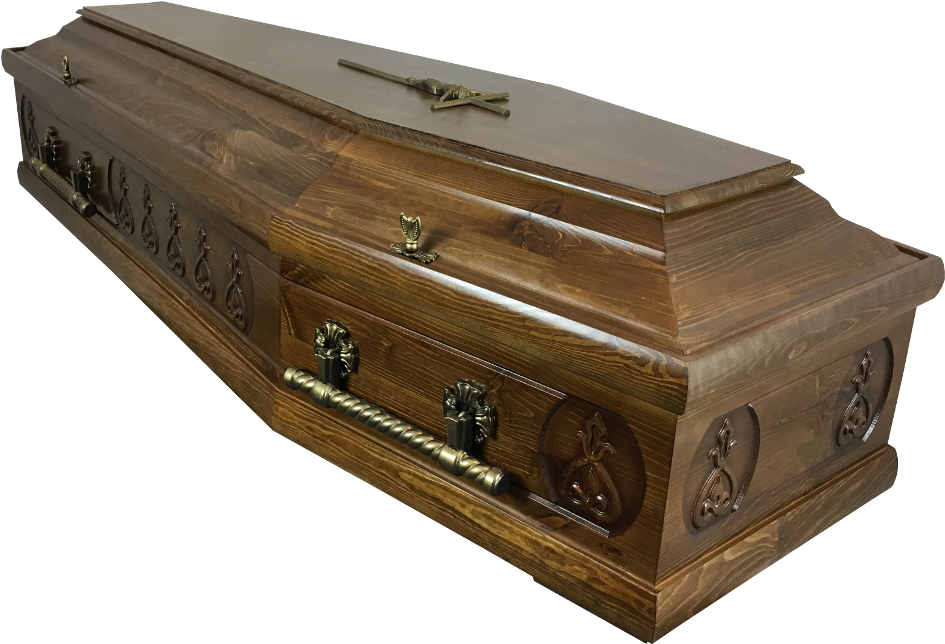
This image has format transparent PNG with resolution 945x644.
You can download this image in best resolution from this page and use it for design and web design.
Coffin PNG with transparent background you can download for free, just click on download button.
A coffin is a funerary box used for viewing or keeping a corpse, either for burial or cremation.
Coffins are sometimes referred to as a casket, particularly in American English. Any box in which the dead are buried is a coffin, and while a casket was originally regarded as a box for jewelry, use of the word "casket" in this sense began as a euphemism introduced by the undertaker's trade. A distinction is commonly drawn between "coffins" and "caskets", using "coffin" to refer to a tapered hexagonal or octagonal (also considered to be anthropoidal in shape) box and "casket" to refer to a rectangular box, often with a split lid used for viewing the deceased as seen in the picture. Receptacles for cremated and cremulated human ashes (sometimes called cremains) are called urns.
Coffins are traditionally made with six sides plus the top (lid) and bottom, tapered around the shoulders, or rectangular with four sides. Another form of four-sided coffin is trapezoidal (also known as the "wedge" form) and is considered a variant of the six-sided hexagonal kind of coffin. Continental Europe at one time favoured the rectangular coffin or casket, although variations exist in size and shape. The rectangular form, and also the trapezoidal form, is still regularly used in Germany, Austria, Hungary and other parts of Eastern and Central Europe, with the lid sometimes made to slope gently from the head down towards the foot. Coffins in the UK are mainly similar to the hexagonal design, but with one-piece sides, curved at the shoulder instead of having a join. In Medieval Japan, round coffins were used, which resembled barrels in shape and were usually made by coopers. In the case of a death at sea, there have been instances where trunks have been pressed into use as coffins. Coffins usually have handles on the side so they will be easier to carry.
They may incorporate features that claim to protect the body or for public health reasons. For example, some may offer a protective casket that uses a gasket to seal the casket shut after it is closed for the final time. In England, it has long been law that a coffin for interment above ground should be sealed; this was traditionally implemented as a wooden outer coffin around a lead lining, around a third inner shell. After some decades have passed, the lead may ripple and tear. In the United States, numerous cemeteries require a vault of some kind in order to bury the deceased. A burial vault serves as an outer enclosure for buried remains and the coffin serves as an inner enclosure. The primary purpose of the vault is to prevent collapse of the coffin due to the weight of the soil above.
Some manufacturers offer a warranty on the structural integrity of the coffin. However, no coffin, regardless of its construction material (e.g., metal rather than wood), whether or not it is sealed, and whether or not the deceased was embalmed beforehand, will perfectly preserve the body. In some cases, a sealed coffin may actually speed up rather than slow down the process of decomposition. An airtight coffin, for example, fosters decomposition by anaerobic bacteria, which results in a putrefied liquefaction of the body, and all putrefied tissue remains inside the container, only to be exposed in the event of an exhumation. A container that allows air to pass in and out, such as a simple wooden box, allows for clean skeletonization. However the situation will vary according to soil or air conditions, and climate.
In this page you can download free PNG images: Coffin PNG images free download